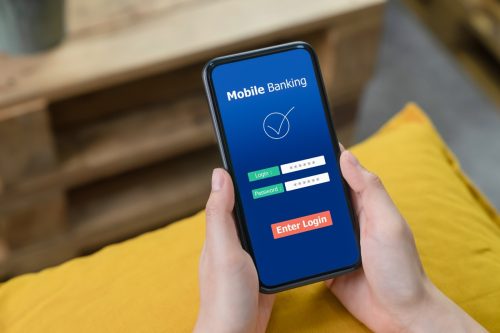4 Times Using Your Credit Card Will Cost You More, Finance Experts Say

Using a credit card is a great way to build your credit score, and in some cases, even rack up points and earn rewards for your purchases. That said, it’s not the best form of payment in every single scenario. According to Scott Nelson, CEO of MoneyNerd, credit cards do sometimes have potential drawbacks, such as interest and merchant fees.
“Some businesses actually charge you more for using a credit card,” explains Todd Stearn, personal finance expert and founder of The Money Manual. “I’ve seen this at gas stations and certain restaurants. In those cases, you don’t really need consumer protection and the credit card rewards points won’t likely make up for the greater expense.”
So, when should you be busting out the cash, debit card, or checkbook instead? Below, experts share a few situations in which using a credit card could end up costing you more.
READ THIS NEXT: Always Use Cash for These 5 Purchases, Financial Experts Say.
1
When you’re making a balance transfer.

Before you transfer your balance from one credit card to another—consider this: most credit card companies will typically charge you a transfer fee, says Nelson.
According to Michael Collins, CFA, CEO of WinCap Financial and professor at Endicott College, this fee can range from 3 to 5 percent of the transfer amount.
If you want to avoid this entirely, Nelson advises seeking out credit card companies that offer promotions for a zero percent balance transfer fee.
2
For a foreign transaction.

Something to keep in mind while traveling: some credit cards companies charge a foreign transaction fee. “There’s also the potential additional cost of a currency conversion fee, which would be added to the foreign transaction fee,” Nelson explains.
According to Stearn, this fee is typically around 3.5 percent. He notes that some credit cards, including Capital One and Discover, don’t charge these fees.
“I’d recommend reading the terms and conditions before making any purchases on your credit card abroad,” adds Nelson.
For more financial advice delivered straight to your inbox, sign up for our daily newsletter.
3
When you can’t pay the balance off on time.

Unless you’re absolutely sure that you’ll remember to pay off the balance on your purchase by the due date, use a different payment method. Otherwise, Nelson says the late fees—which often cost up to $40 or so—add up quickly.
Worse yet, Collins notes that a penalty APR may also be applied when your card is carrying a balance—which then translates to a higher interest rate.
According to Derek Sall, personal finance expert and founder of Life & My Finances, that penalty APR may be as high as 30 percent.
Not to mention, late payments can hurt your credit score.
READ THIS NEXT: Never Use Your Credit Card for These 6 Purchases, According to Financial Experts.
4
For cash advances.

According to Collins, when you take out a cash advance using your credit card, you’ll often be charged a higher interest rate than you would for a regular purchase.
Plus, you may also have to pay a cash advance fee, Pav Masutes, finance consultant and CEO/founder of Masutes Group points out.
“It’s important to note that interest on cash advances usually starts accruing immediately, meaning there’s no grace period like there is for regular purchases,” he explains. “So, if you’re considering a cash advance, it’s worth exploring other options like a personal loan, which may have a lower interest rate and fewer fees.”
Best Life offers the most up-to-date financial information from top experts and the latest news and research, but our content is not meant to be a substitute for professional guidance. When it comes to the money you’re spending, saving, or investing, always consult your financial advisor directly.